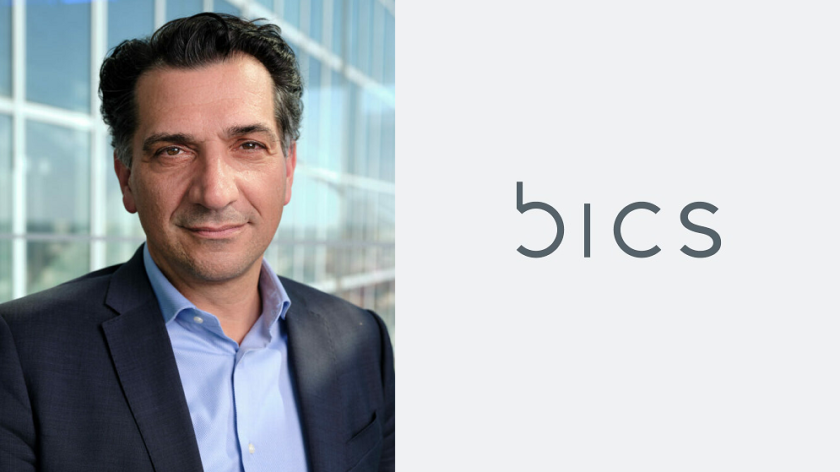When Russia invaded Ukraine, the global telecoms and connectivity industry united to support the country in any way it could. For his part, Matteo Gatta, CEO of BICS and a member of the Global Leaders’ Forum, wrote an open letter to Europe’s mobile operators, asking them to “remove all charges on voice calls coming out of Ukraine and terminating into their networks”. In turn, BICS would carry the traffic with no cost.
In less than a month, 27 operators had signed a joint statement enabling free roaming and international calls between the EU and Ukraine – facilitated by the European Commission, the European Parliament, the Body of European Regulators for Electronic Communications (BEREC) and the Ukrainian national regulatory authority.“I am very proud of the response from our industry peers to the war in Ukraine,” Gatta says.
“Many operators have vowed to reduce charges, and since our letter was published the EU Commission has united in its support of the Ukrainian people.
“We believe that communication is a fundamental right, and we are glad the industry has come together to play its part in helping people stay connected with their loved ones at this tragic time,” he adds.
Such cross-industry collaboration is a foundation of the Global Leaders’ Forum, which this year has seen BICS participate in the fraud working group. For Gatta, it’s one of those industry challenges that every player must do more to tackle.
He says: “The industry still must do more to combat fraud. We are committed to helping operators address that challenge, but it is an ever-evolving threat and needs greater collaboration and attention between all players of the telecoms ecosystem.”
Last June, BICS added dedicated robocalling prevention capabilities to its fraud mitigation platform, allowing operators to easily identify and automatically block robocalls.
With collaboration often fostered during Capacity-hosted conferences, Gatta says that events such as Capacity Middle East and ITW – which both returned to a live format this year – present “opportunities to get together and foster further collaboration”.
“The GLF advocates for cross-industry collaboration when it comes to fraud prevention, and has a significant focus on inclusivity and diversity in the workplace. These are both areas where BICS and the GLF share common values – and being part of the board means I am able to bring the best thinking from GLF members home to BICS to improve how we work together as an organisation,” he adds.
Leading the enterprise
It’s about 18 months since Gatta took over as CEO of BICS, following the departure of Daniel Kurgan, who now chairs the board of directors for InterCloud.
“The most rewarding experience in my time as CEO so far is earning the trust of our expert team and watching them continue to push BICS forward towards bigger and better things,” Gatta says of the experience to date. Those bigger and better things span the Internet of Things (IoT), machine to machine (M2M) communications and the cloud and private network needs of enterprises.
Since early 2021, BICS has introduced both borderless 5G and private network capabilities to its Sim for Things solution, and has introduced voice APIs to its portfolio of programmable communications solutions. Further, in shifting to deliver cloud-based omnichannel services alongside its existing portfolio, in December it confirmed the acquisition of 3M Digital Networks.
It’s “a major milestone in BICS’ transformation to a communications platform company”, Gatta says, and “a journey which we are very excited about”.
The acquisition is executed by subsidiary BICS Singapore and will see it double down on both enterprise and telecoms customers by delivering a suite of cloud-based omnichannel communications services alongside the existing portfolio.
The wider strategy, as disclosed at the time, is to expand BICS’ Software-as-a-service (SaaS) solutions to support businesses in their digital transformation.
The new cloud-native capabilities cover AI-enabled voice, multi-channel messaging – including WhatsApp, verification services, IP messaging, and rich communications services (RCS) – as well as advanced analytics services.
As Gatta sees it, the enterprise segment can solve one huge headache for operators. He explains: “The other challenge for operators is how best to recoup their significant investment in 5G spectrum and infrastructure. We believe a key to that is working closely with enterprises and meeting their modern connectivity needs through private networks, and better enablement of IoT and M2M communications.”
Notably, BICS saw a 44% increase in global machine roaming on its network over the course of 2021. Crediting the growth to an “explosion of IoT use cases in industries from logistics to e-health”, Gatta said at the time that “the trajectory for mass machine communication is crystal clear”.
He adds: “We have gone through some exciting changes at BICS over the past year and are now better positioned than ever to service the burgeoning enterprise market, while building on our leading position as an international communications enabler.”





